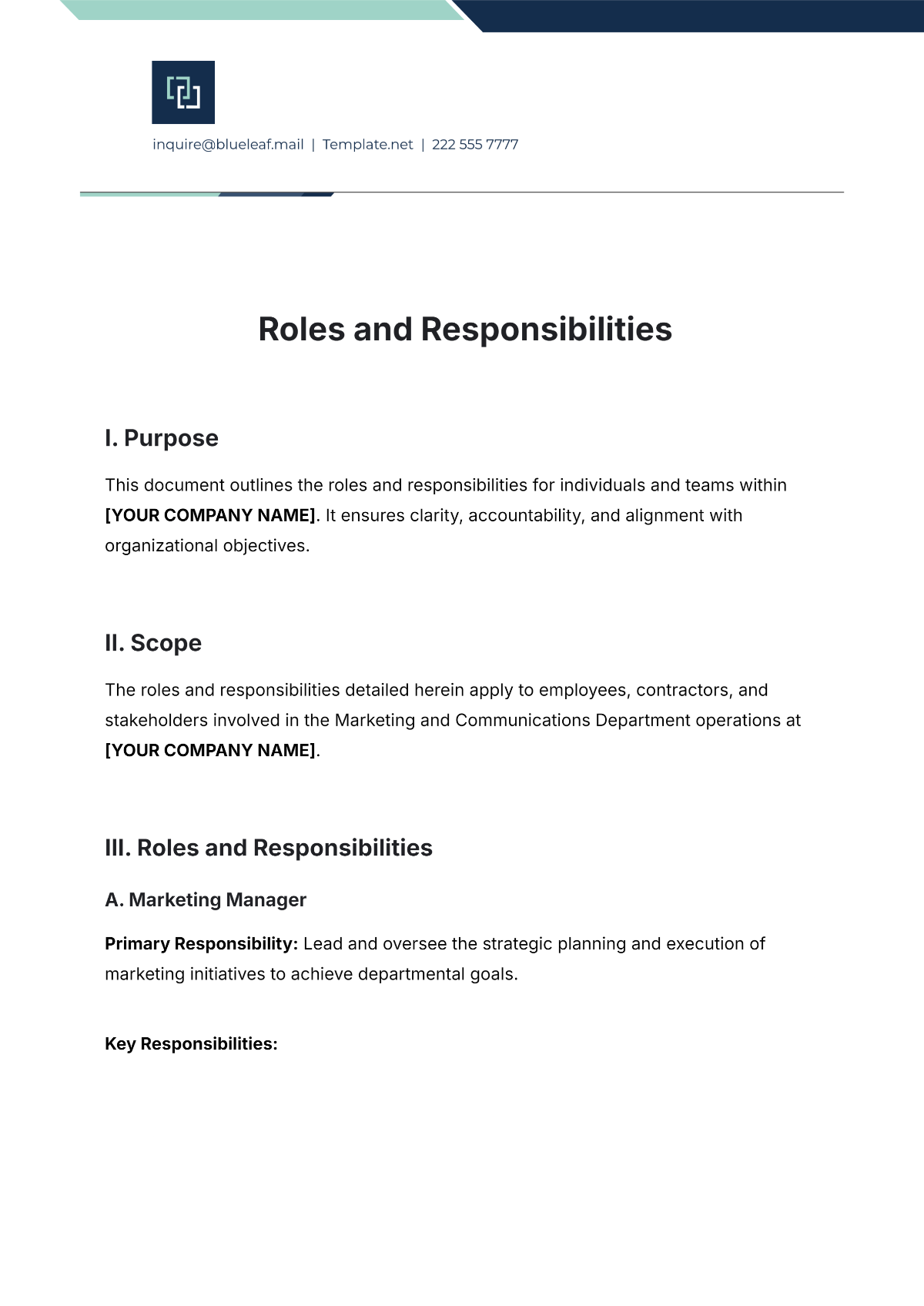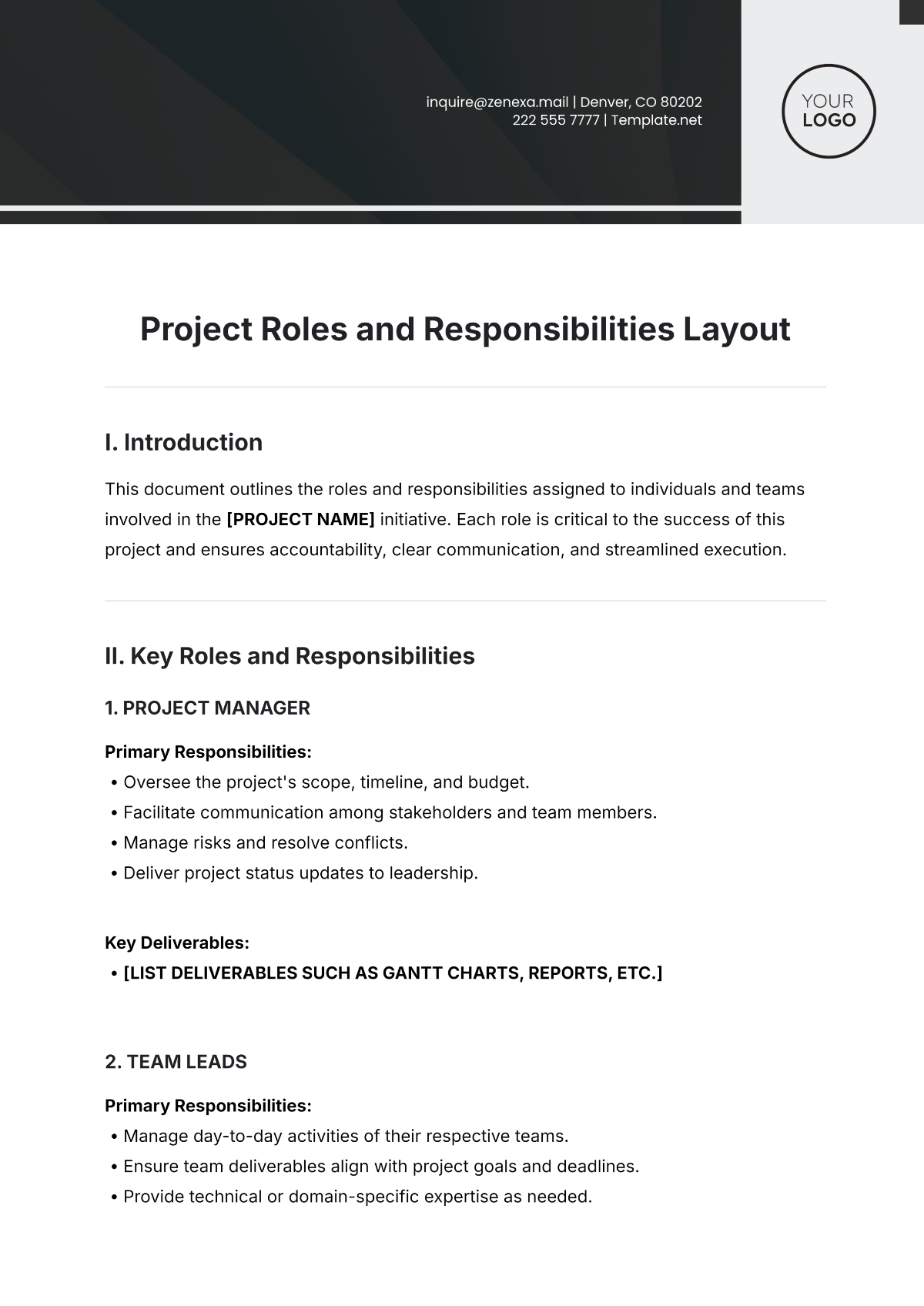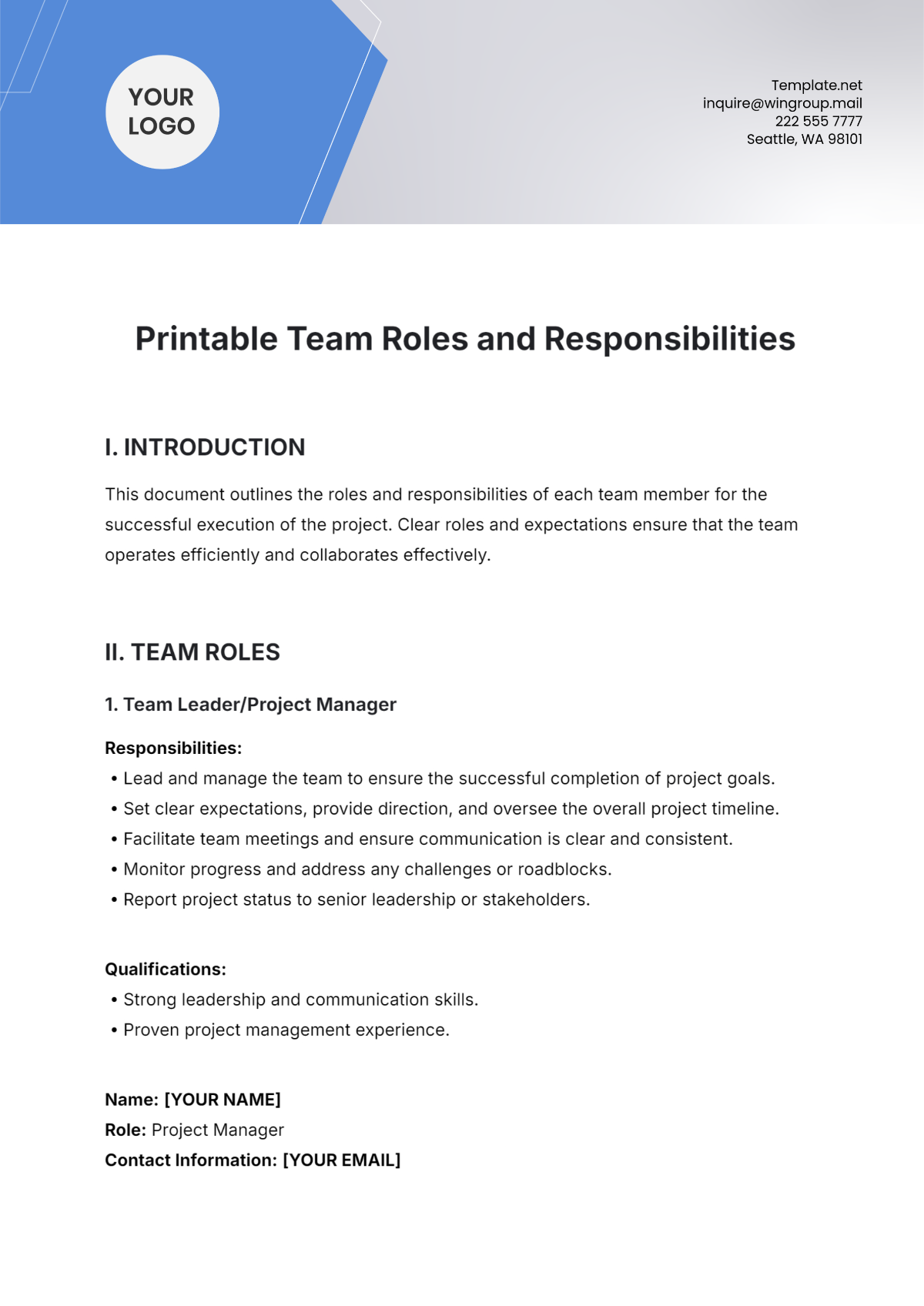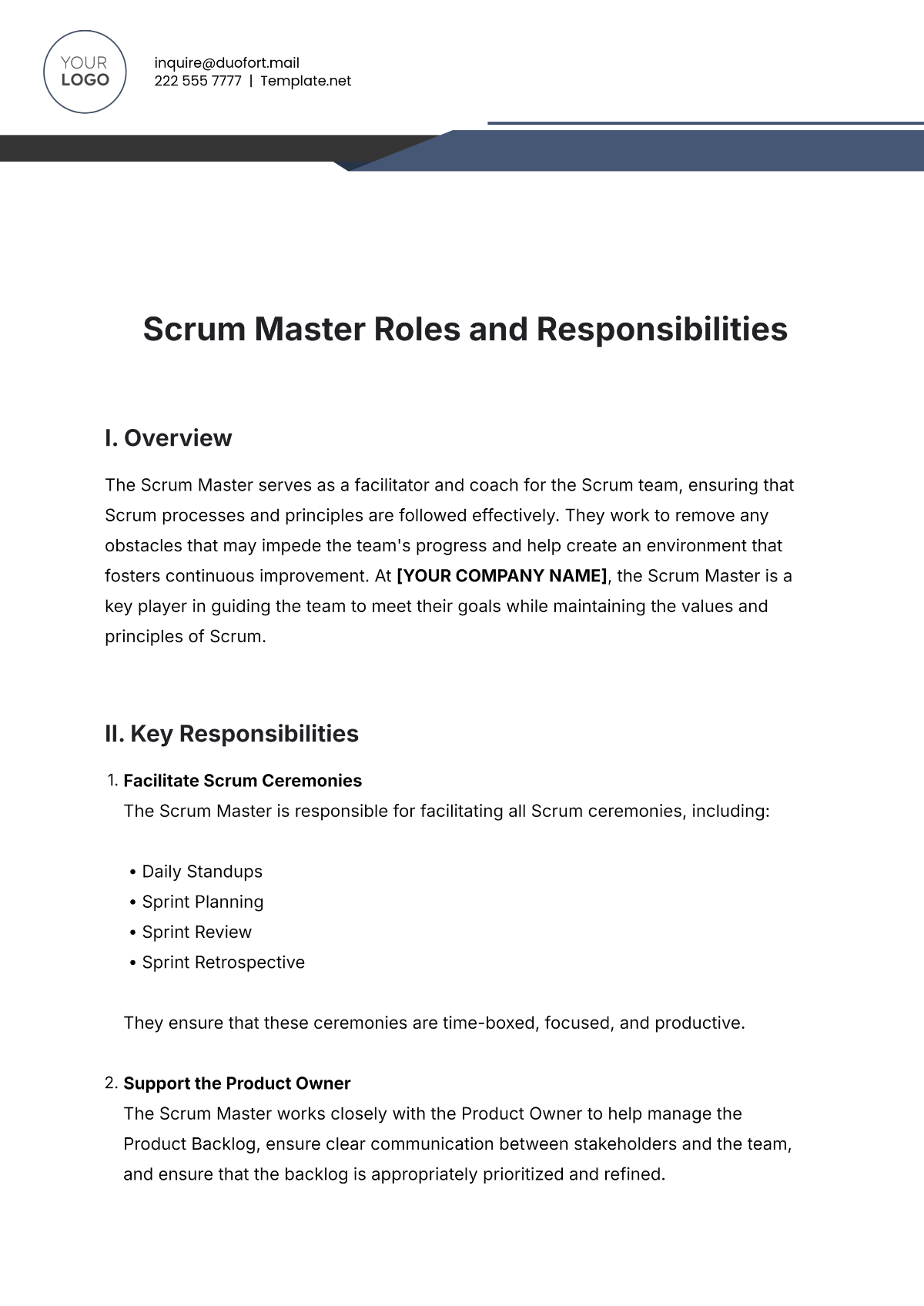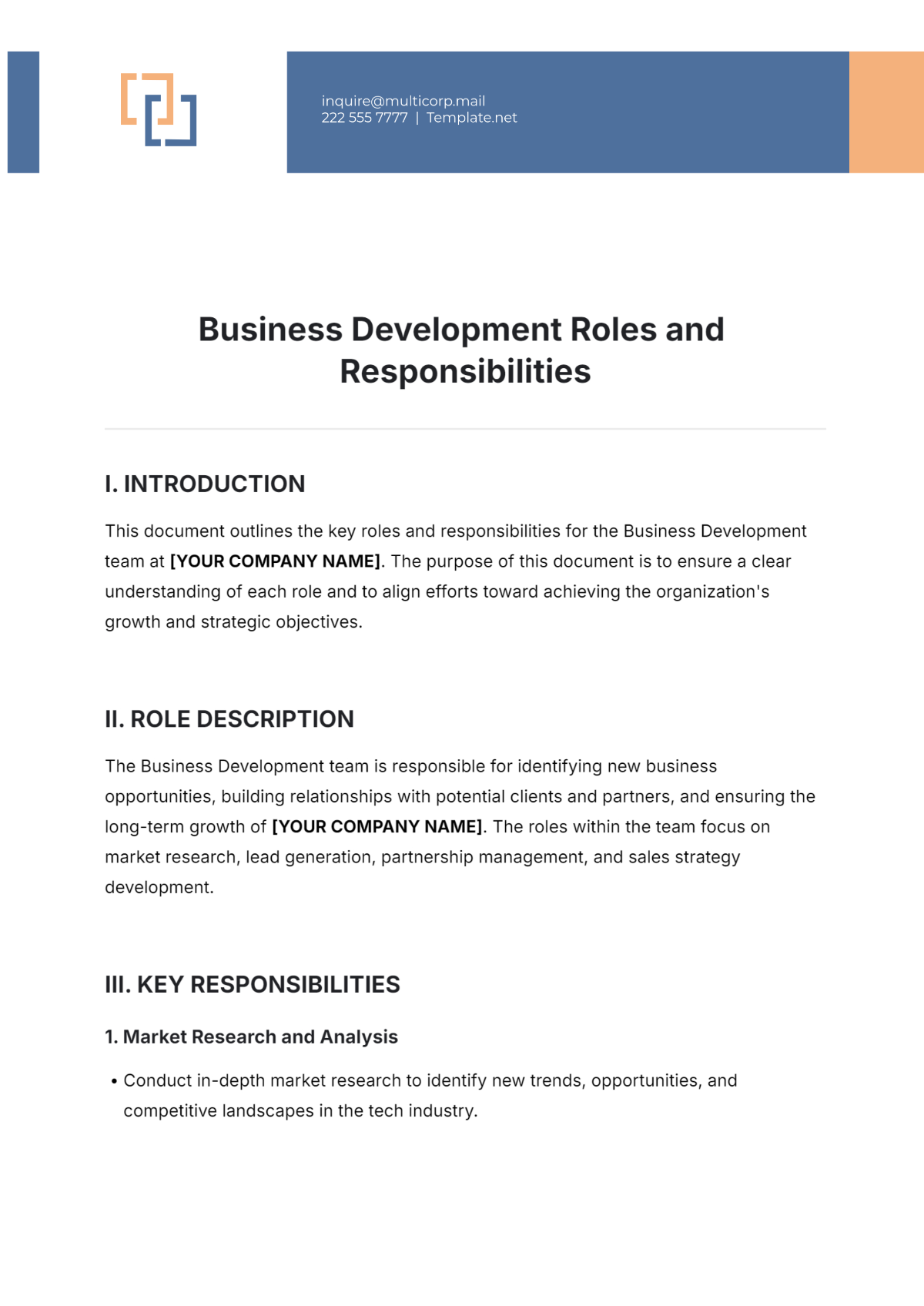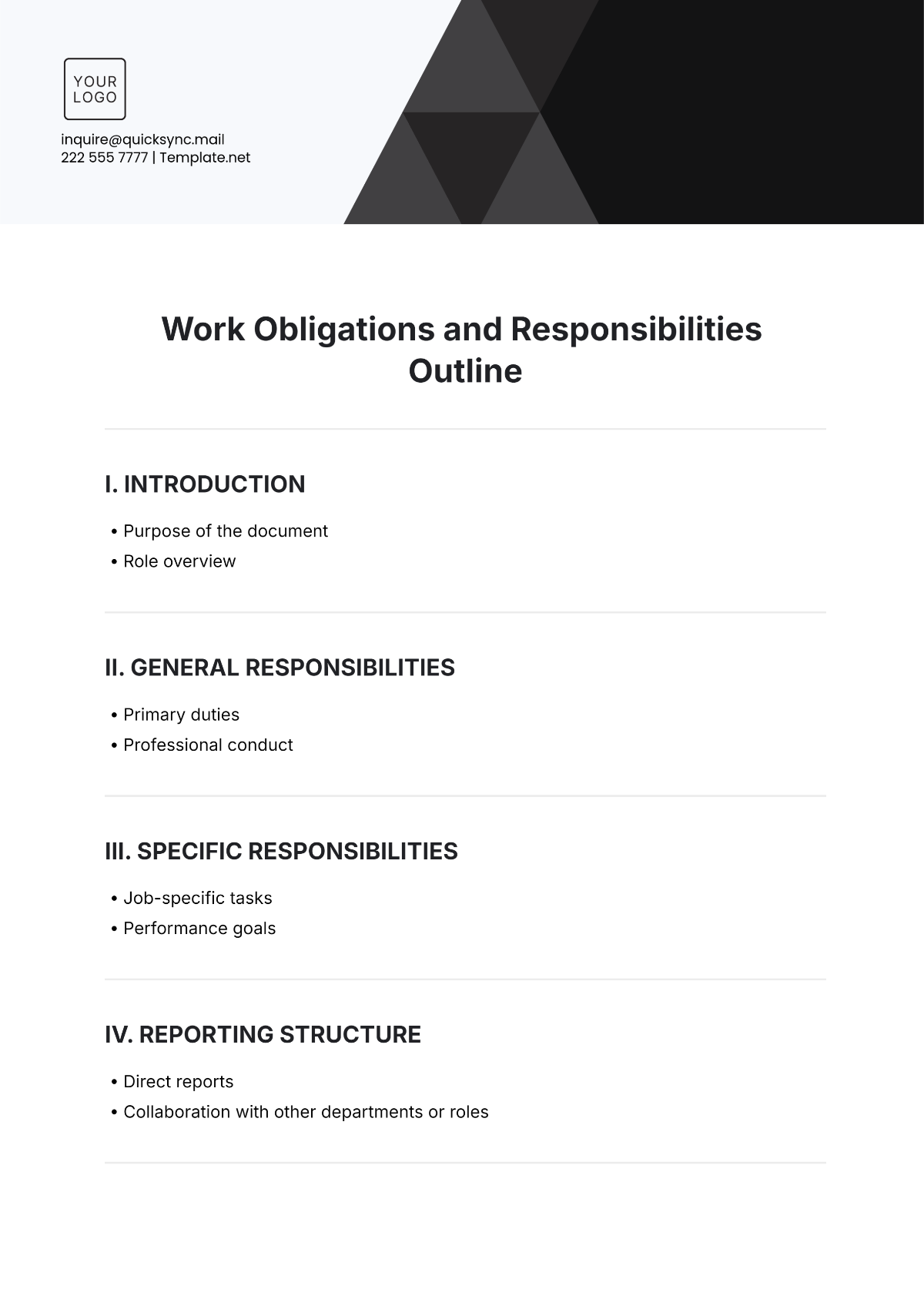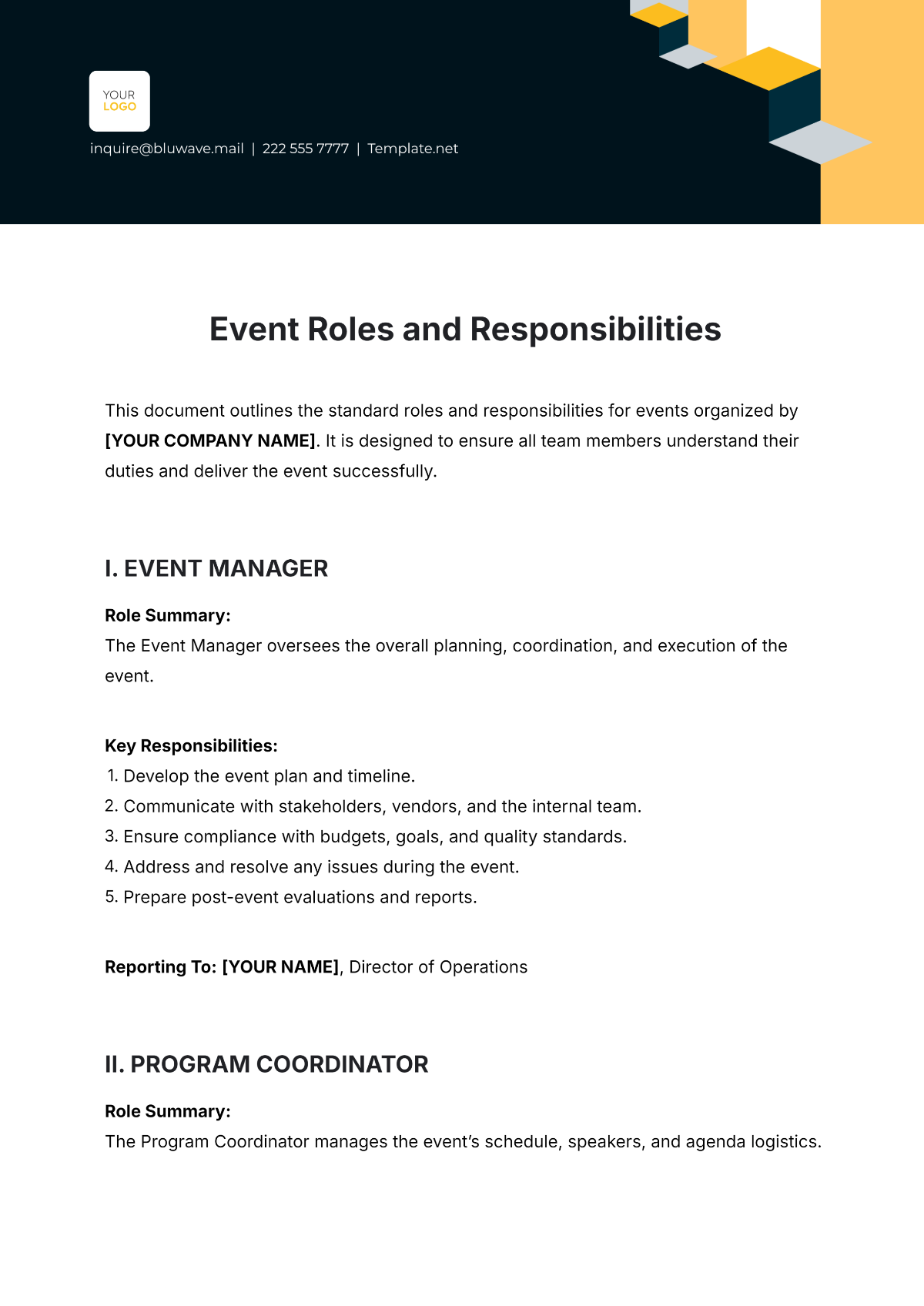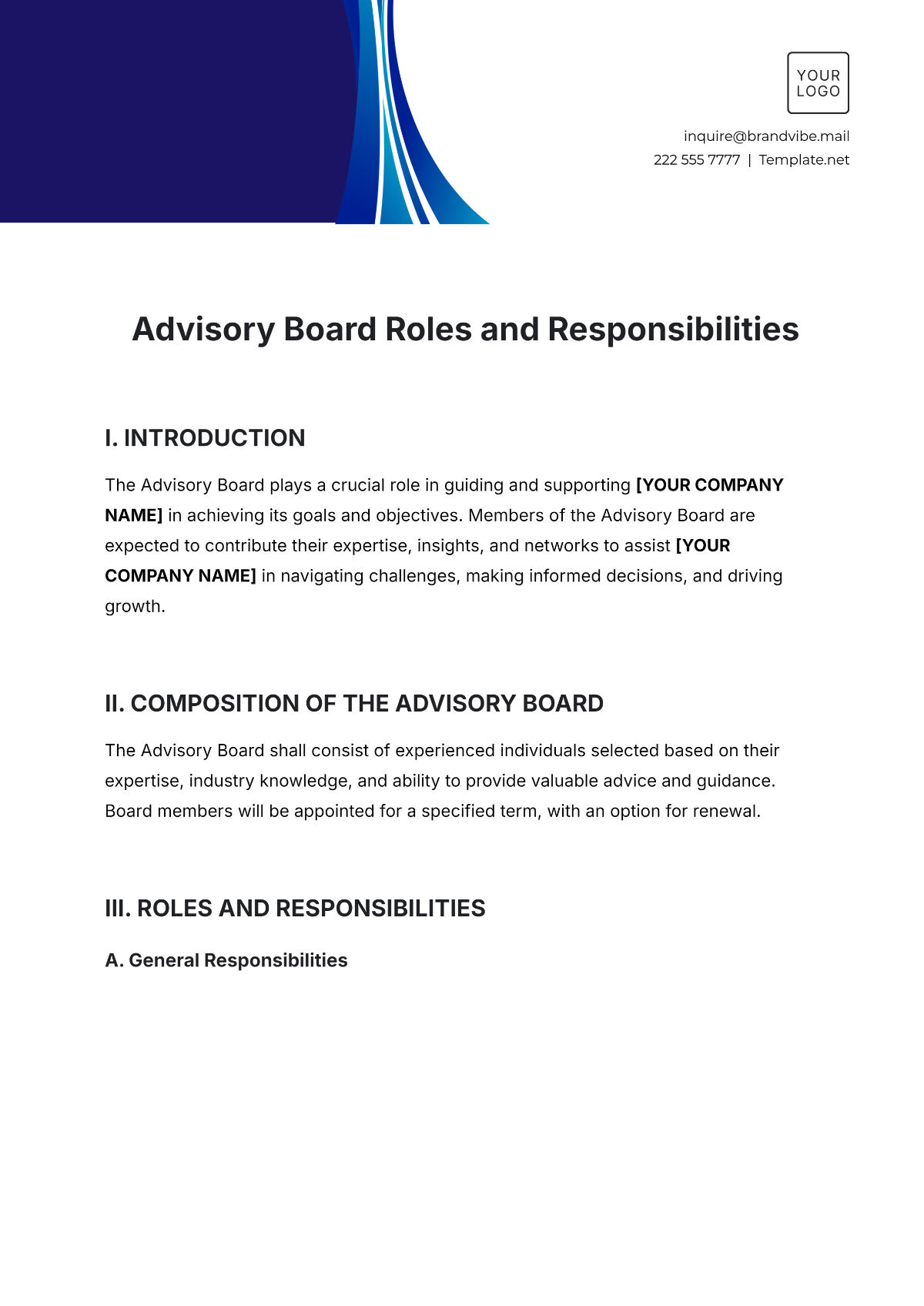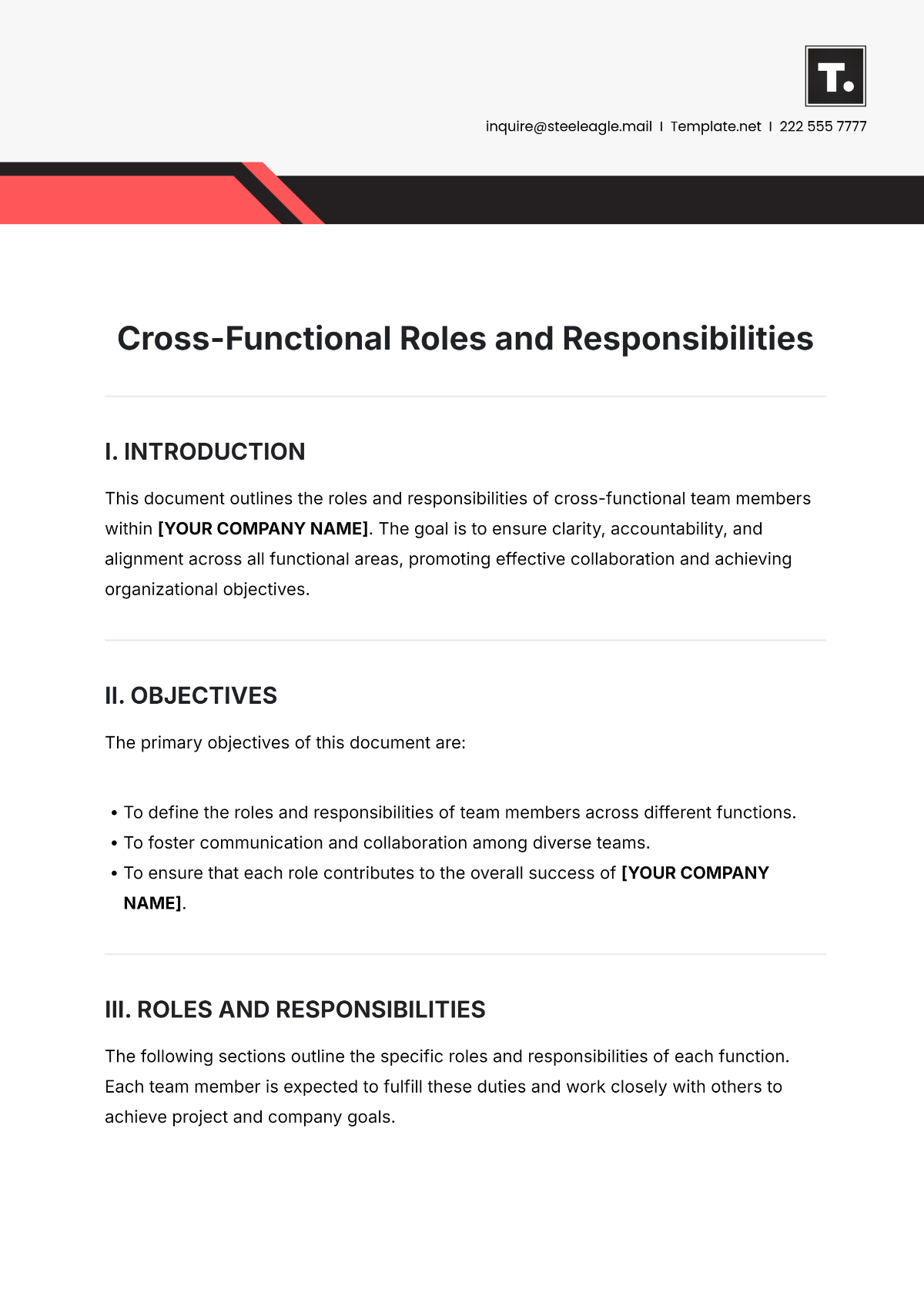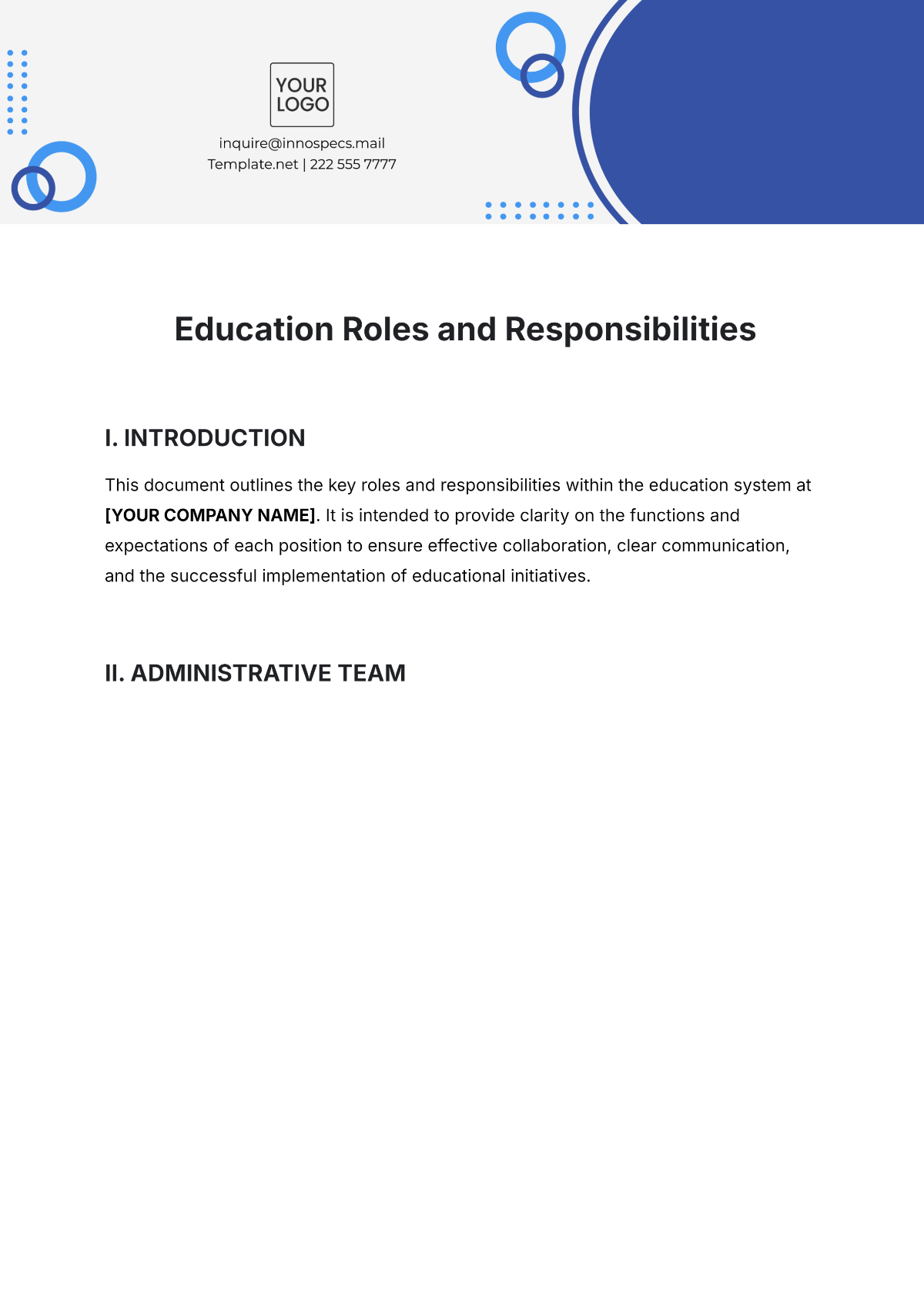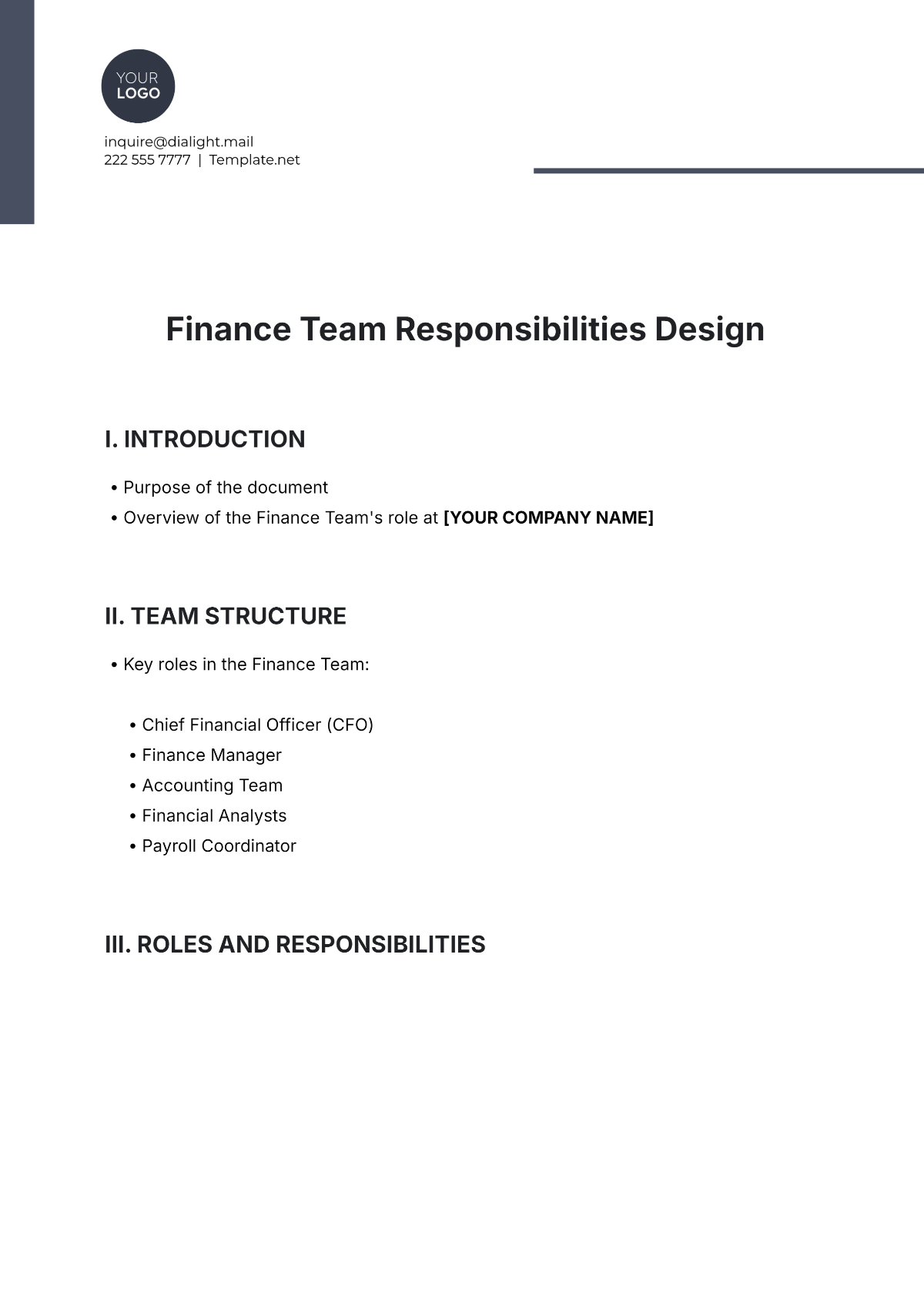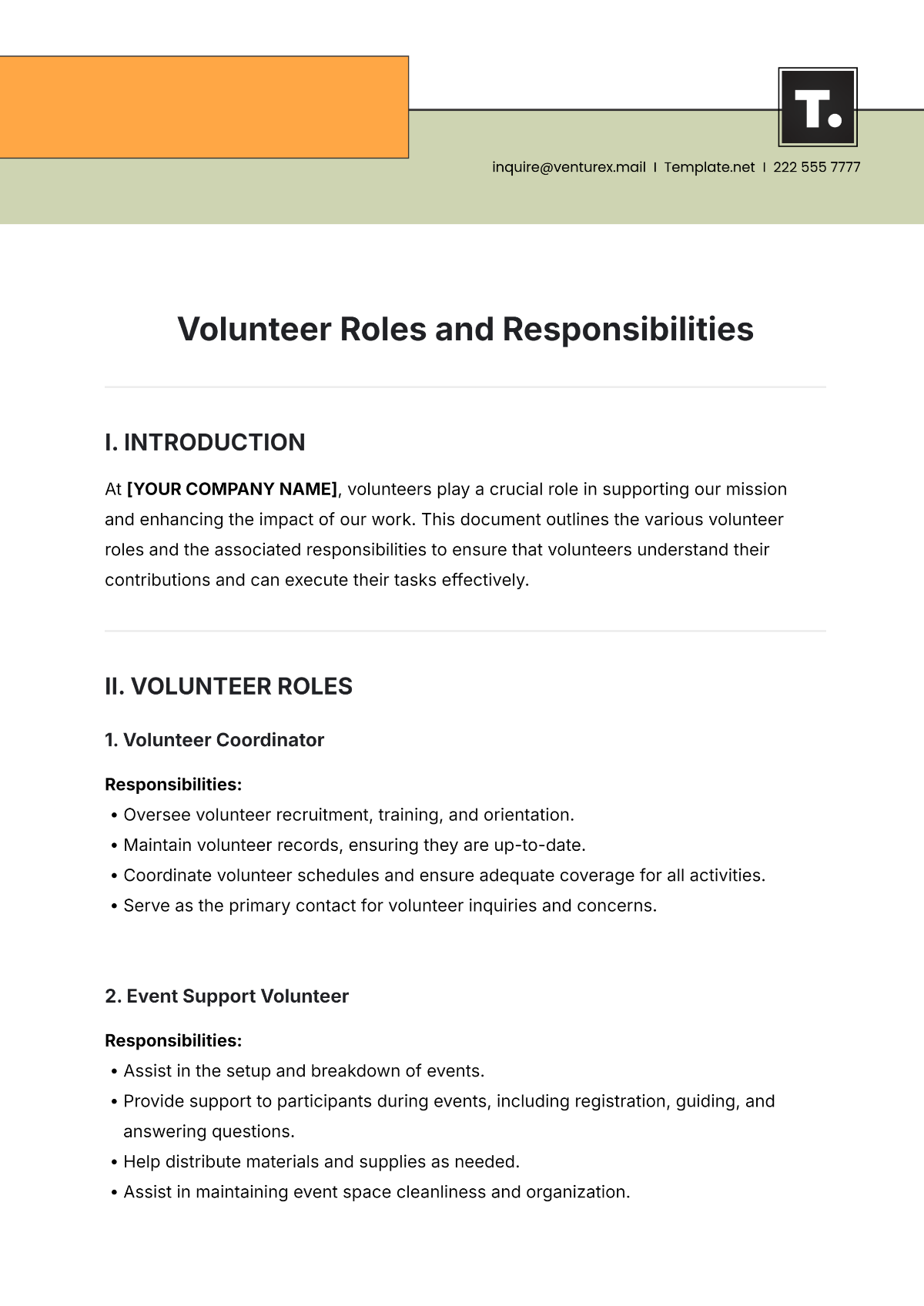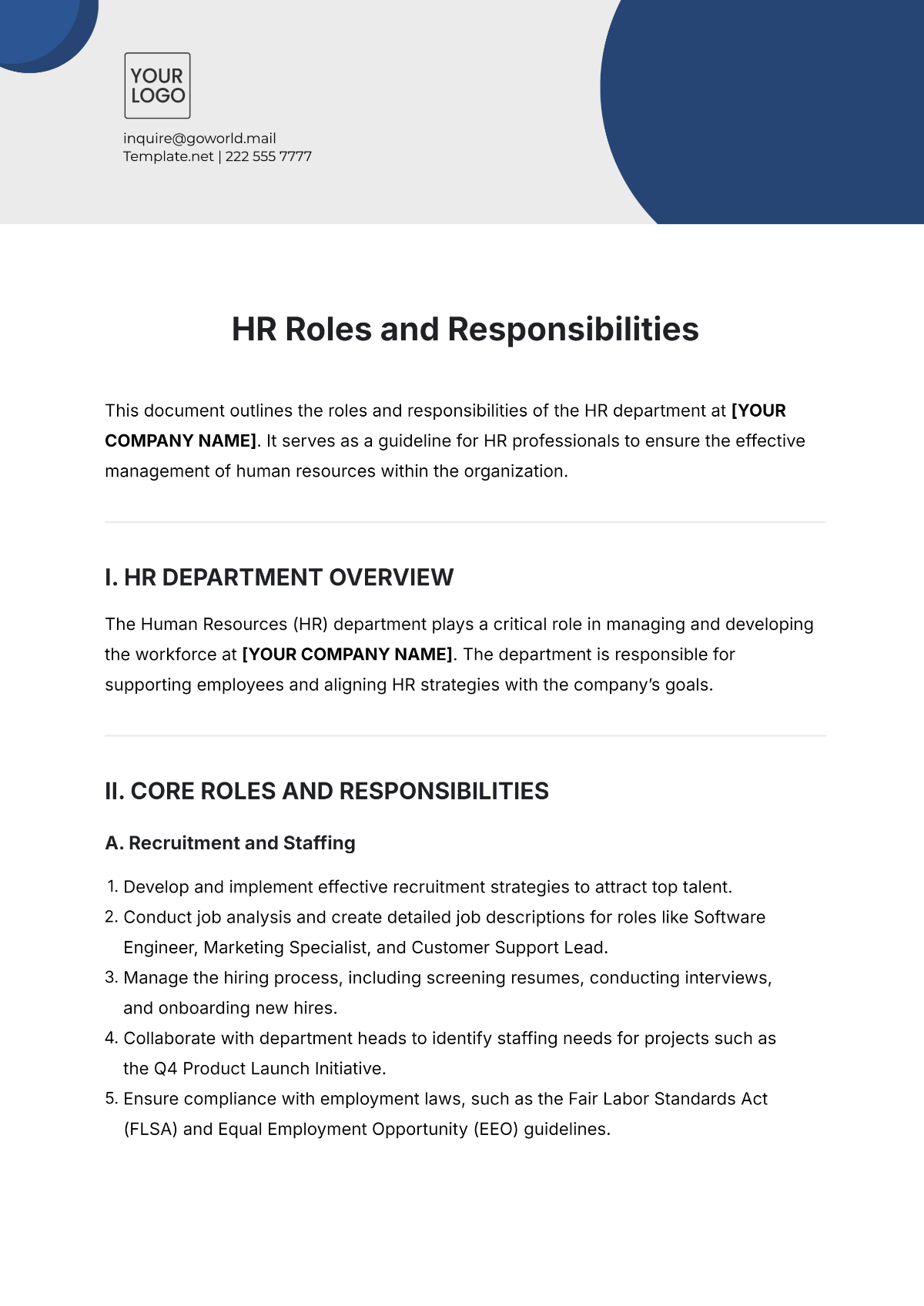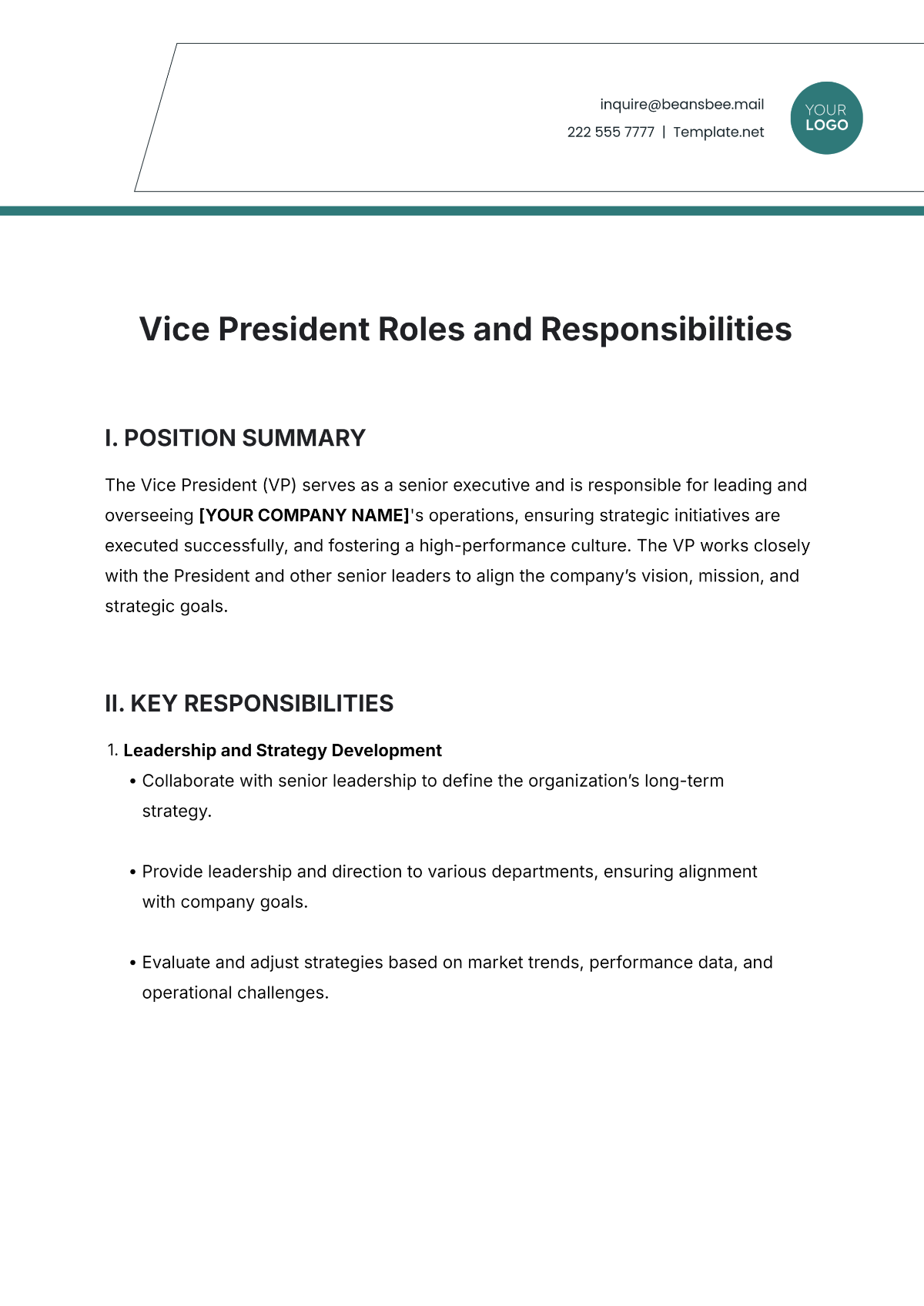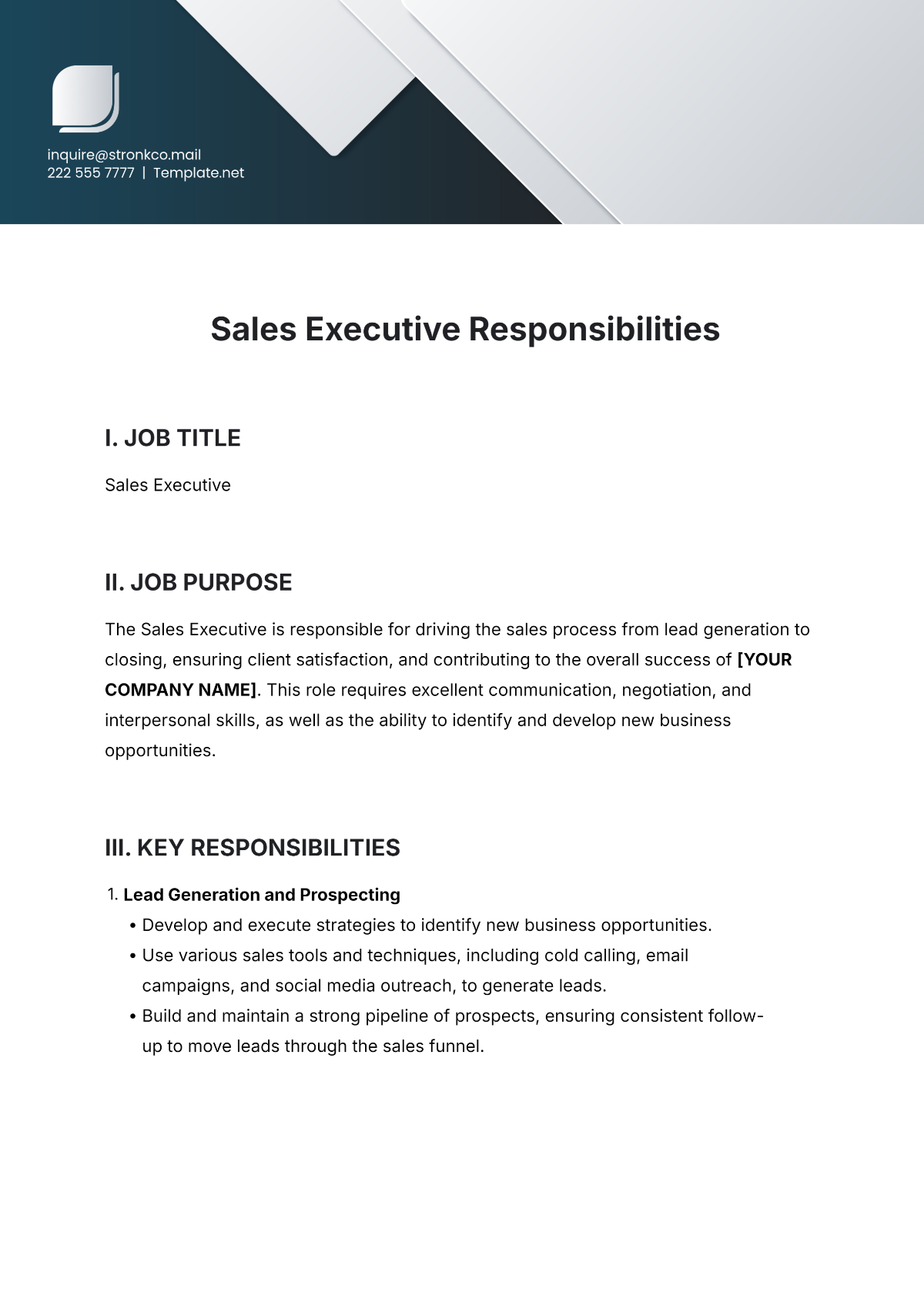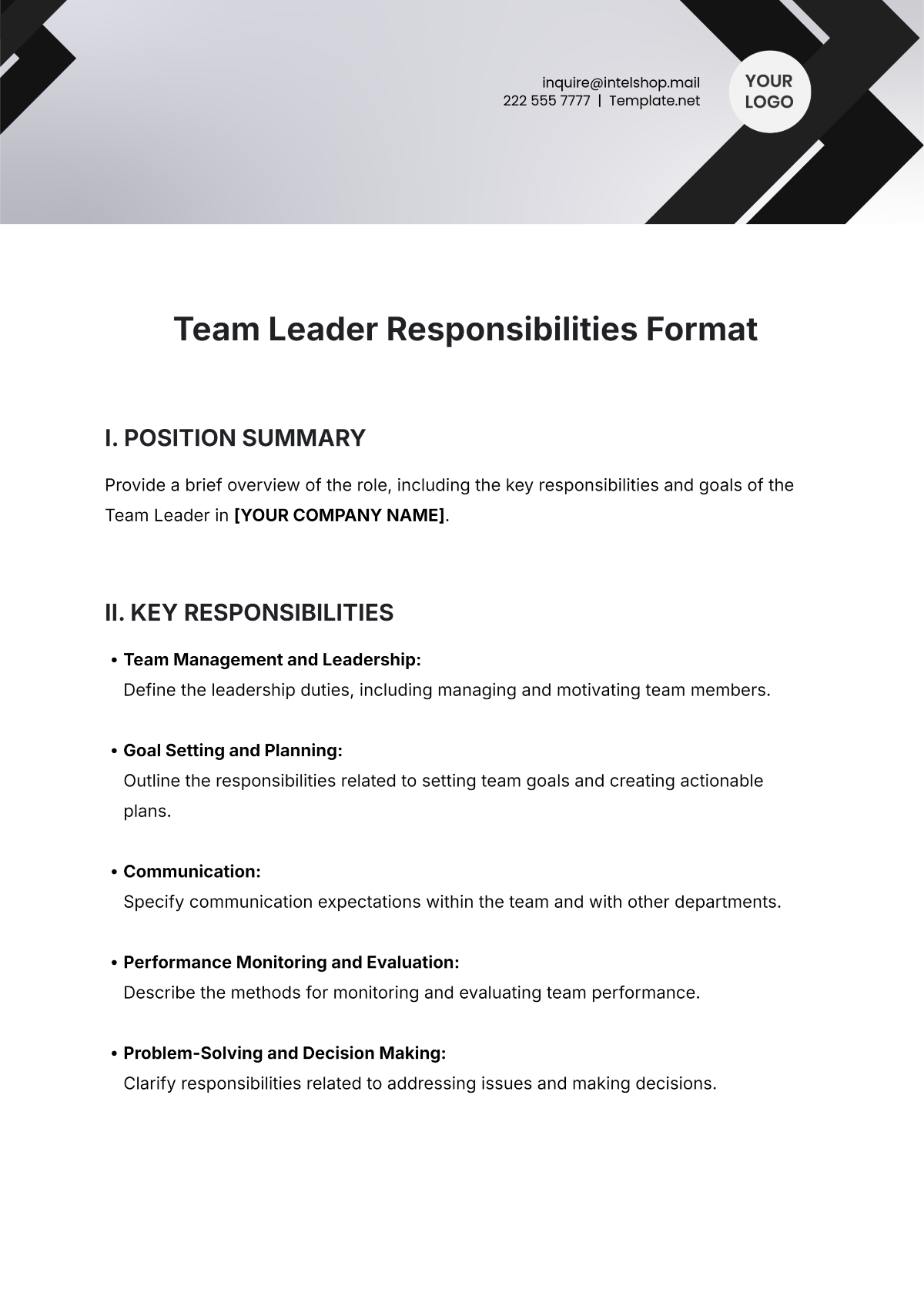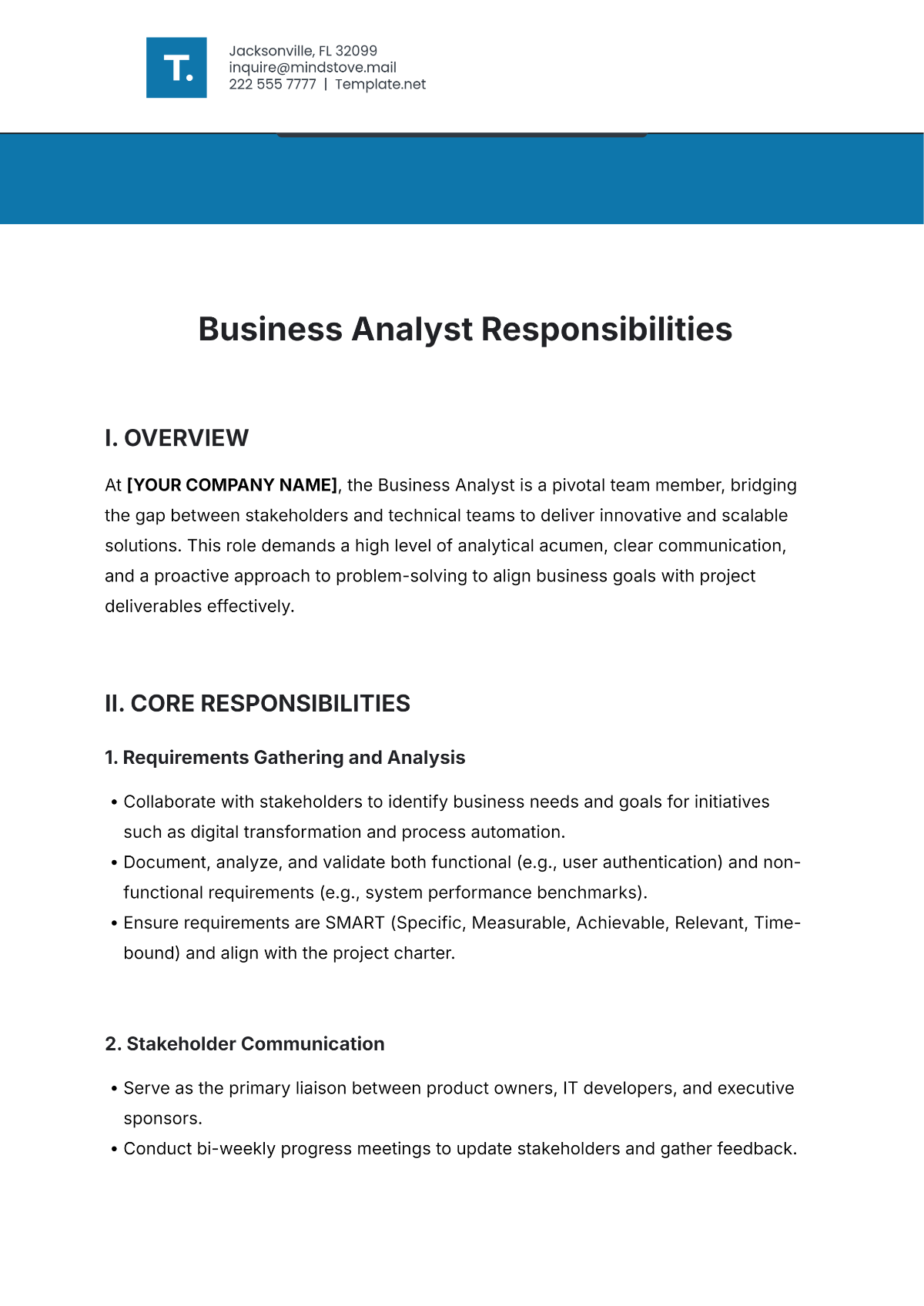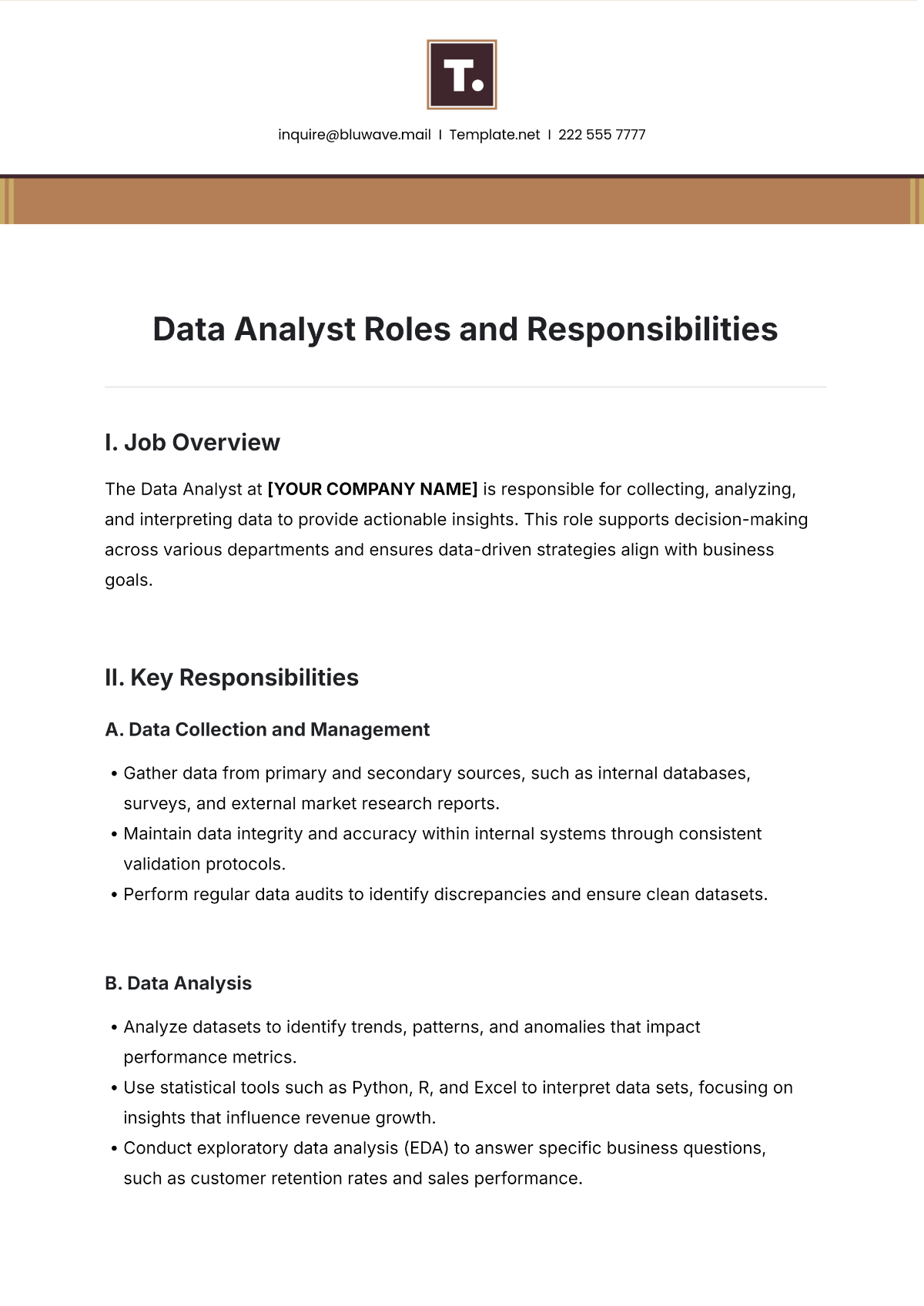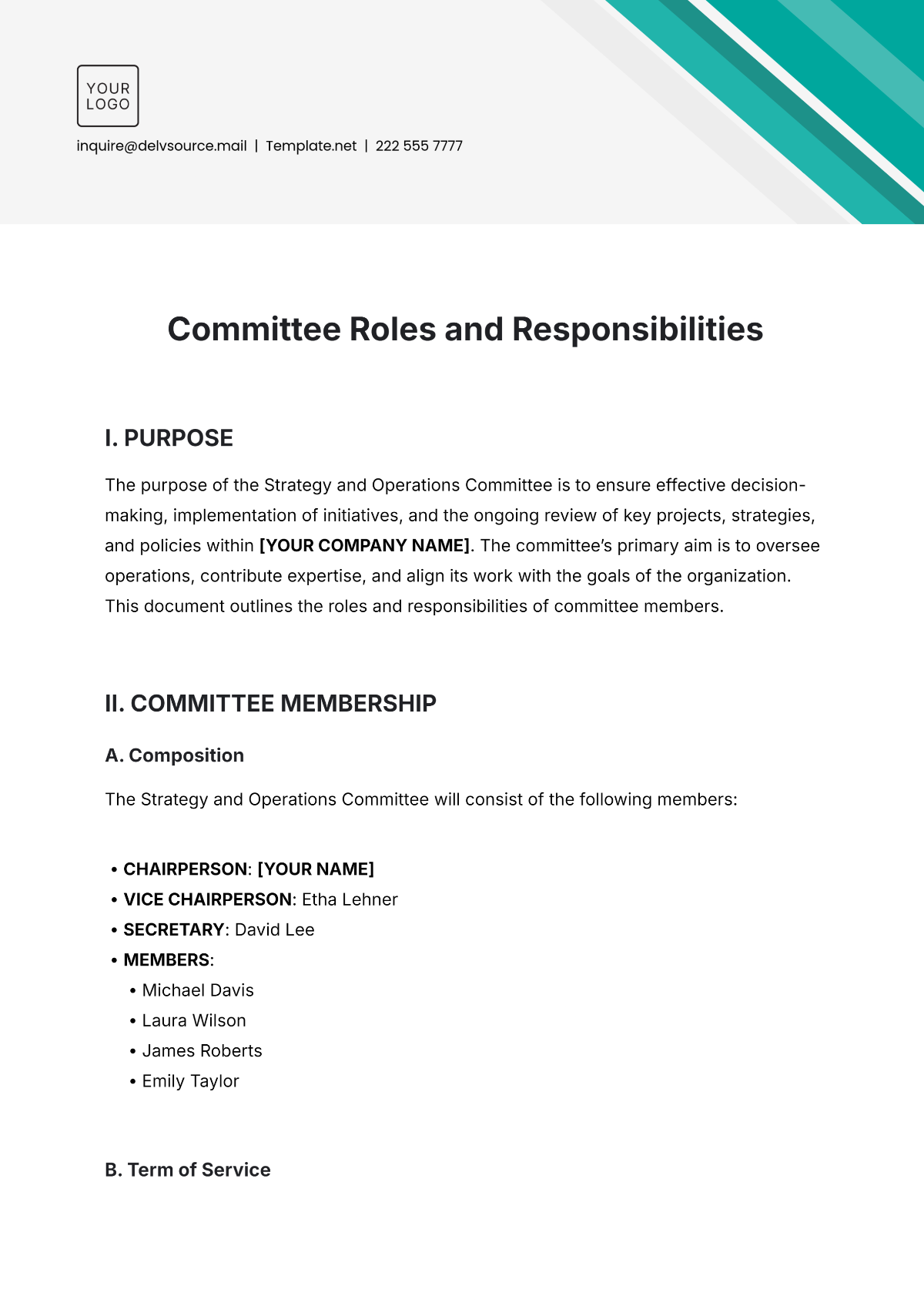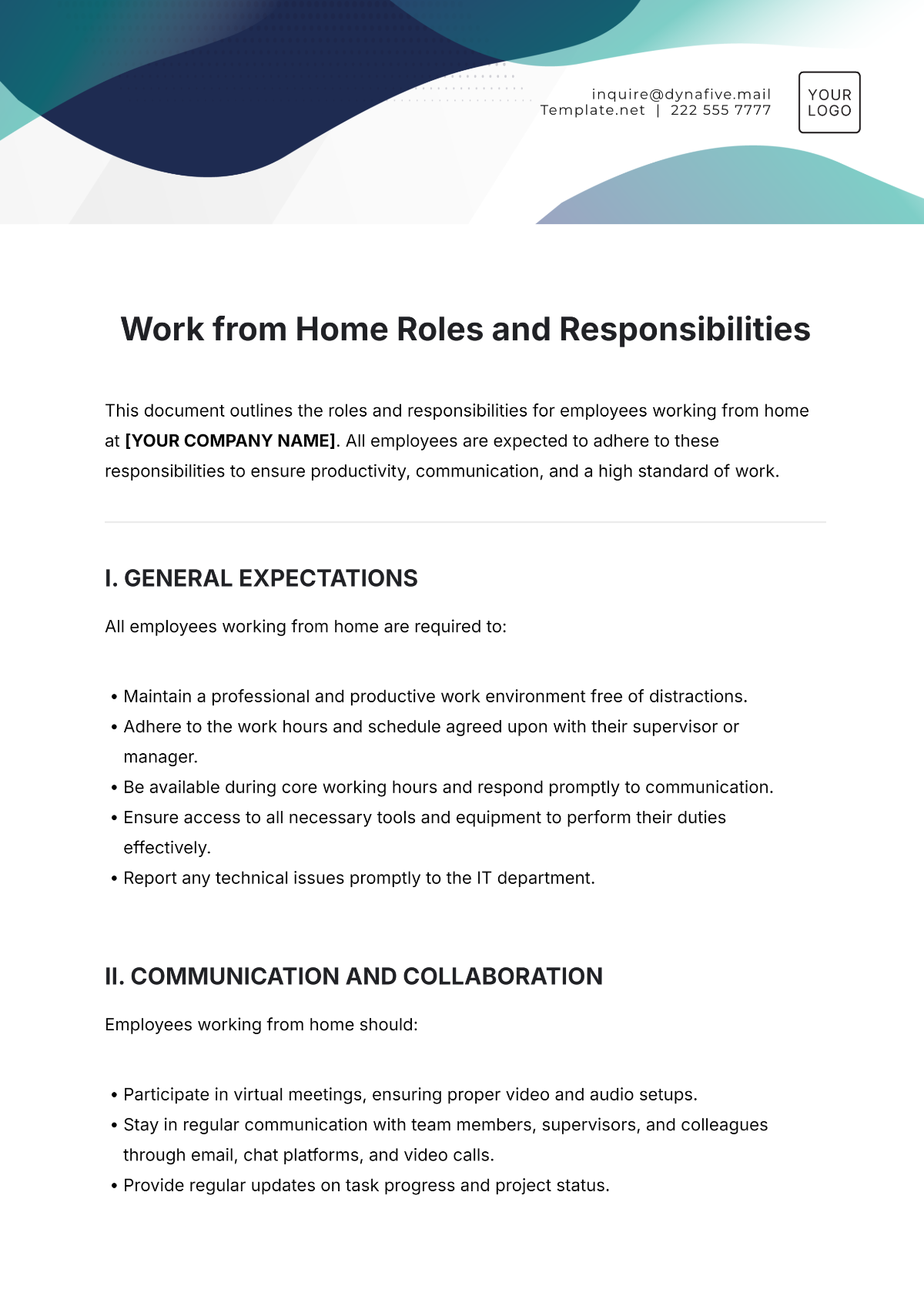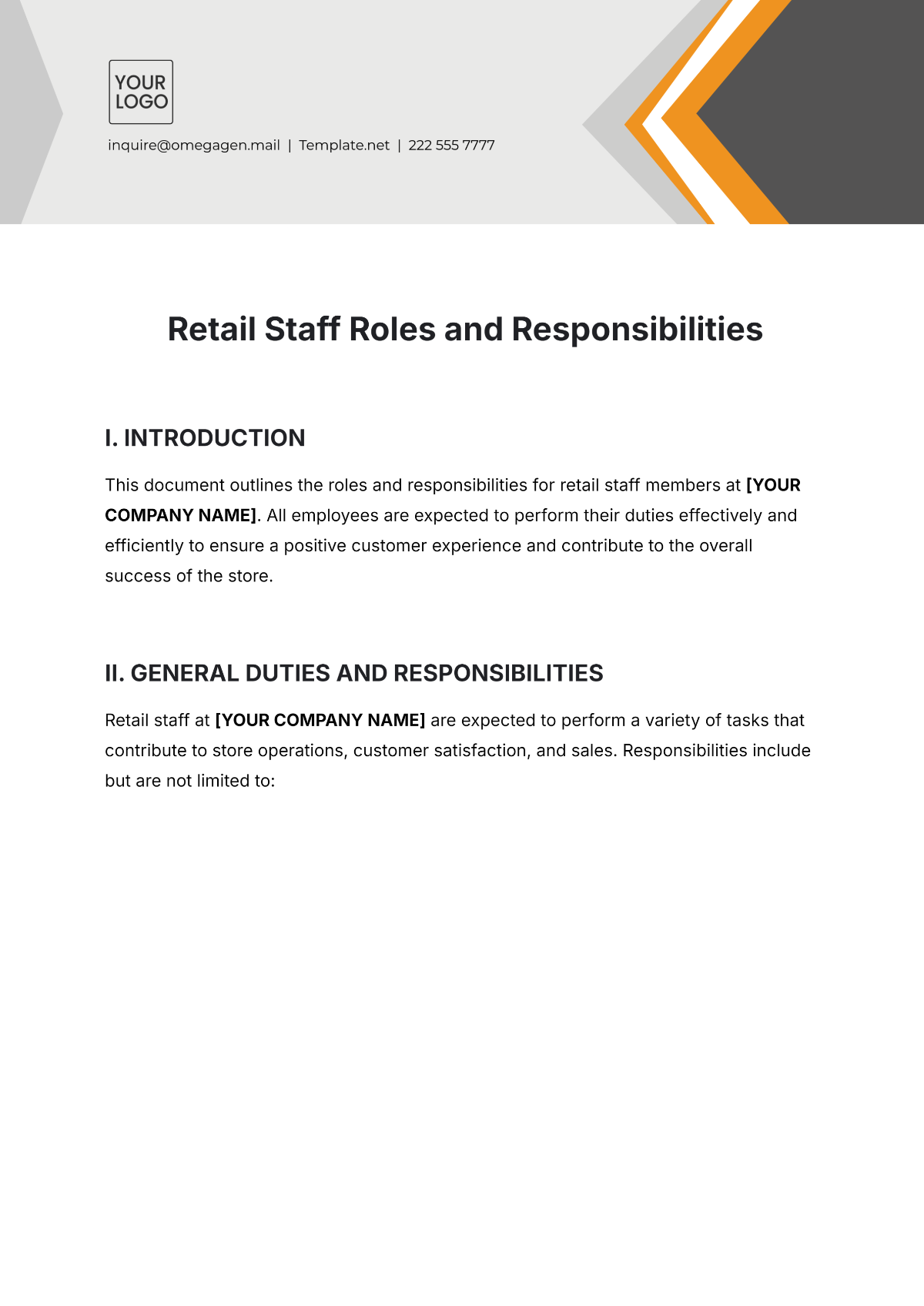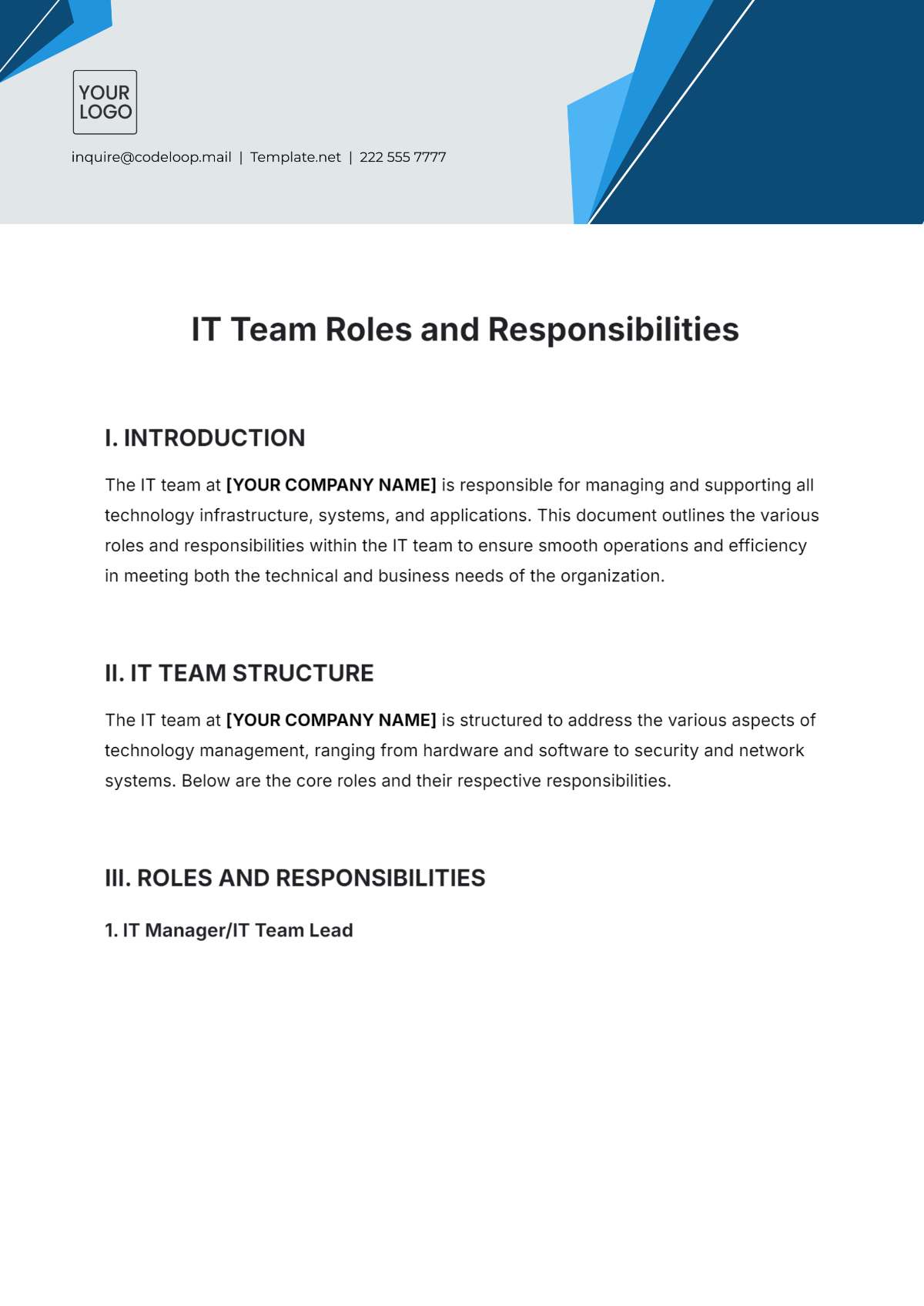Advisory Board Roles and Responsibilities
I. INTRODUCTION
The Advisory Board plays a crucial role in guiding and supporting [YOUR COMPANY NAME] in achieving its goals and objectives. Members of the Advisory Board are expected to contribute their expertise, insights, and networks to assist [YOUR COMPANY NAME] in navigating challenges, making informed decisions, and driving growth.
II. COMPOSITION OF THE ADVISORY BOARD
The Advisory Board shall consist of experienced individuals selected based on their expertise, industry knowledge, and ability to provide valuable advice and guidance. Board members will be appointed for a specified term, with an option for renewal.
III. ROLES AND RESPONSIBILITIES
A. General Responsibilities
Provide Strategic Advice: Advisory Board members are expected to offer insights on strategic direction, long-term goals, and industry trends.
Serve as Mentors: Board members should act as mentors to the [YOUR COMPANY NAME] leadership team, offering guidance based on their experience.
Support Business Development: Assist in identifying potential business opportunities, partnerships, and funding sources.
Leverage Networks: Utilize personal and professional networks to open doors for [YOUR COMPANY NAME] in new markets, clients, and industries.
Advocate for the Company: Represent [YOUR COMPANY NAME] positively in industry circles, at conferences, and in meetings with key stakeholders.
Offer Subject Matter Expertise: Provide specific expertise to address operational, financial, or marketing challenges facing the company.
B. Specific Responsibilities
Review Business Plans: Advisory Board members will review and provide feedback on the company's business plans and strategies.
Attend Regular Meetings: Attend and actively participate in regular Advisory Board meetings (quarterly or as needed) to discuss company progress, challenges, and key initiatives.
Provide Crisis Management Guidance: Offer expertise in navigating periods of crisis or significant change within the company.
Assist in Governance: Help ensure that the company adheres to ethical practices, legal requirements, and corporate governance standards.
IV. MEETING ATTENDANCE AND PARTICIPATION
Advisory Board members are expected to attend all scheduled meetings, whether in-person or virtual. If a member is unable to attend, they should notify the Chairperson in advance and, if necessary, provide feedback in writing.
V. COMMITTEE PARTICIPATION
Advisory Board members may also be asked to serve on subcommittees or working groups focusing on specific areas, such as fundraising, strategy development, or legal matters.
VI. CONFIDENTIALITY
All members of the Advisory Board must maintain the confidentiality of proprietary information, business strategies, and sensitive discussions related to [YOUR COMPANY NAME].
VII. TERMS AND EXPECTATIONS
Advisory Board members will serve a term of 2 years, with the possibility of renewal based on mutual agreement between the board and [YOUR COMPANY NAME]. Board members are expected to dedicate sufficient time and effort to fulfill their roles and responsibilities.
VIII. COMPENSATION AND EXPENSES
While Advisory Board members typically serve without financial compensation, [YOUR COMPANY NAME] may cover reasonable expenses incurred for attending meetings or other company-related activities.
IX. CONFLICT OF INTEREST
Advisory Board members must disclose any potential conflicts of interest and recuse themselves from discussions or decisions where they have a personal, financial, or professional interest that could influence their objectivity.
X. CONCLUSION
By providing strategic advice, leveraging networks, and offering expertise, Advisory Board members help ensure the continued success of [YOUR COMPANY NAME]. Their contributions are vital to shaping the company’s future and overcoming challenges.
